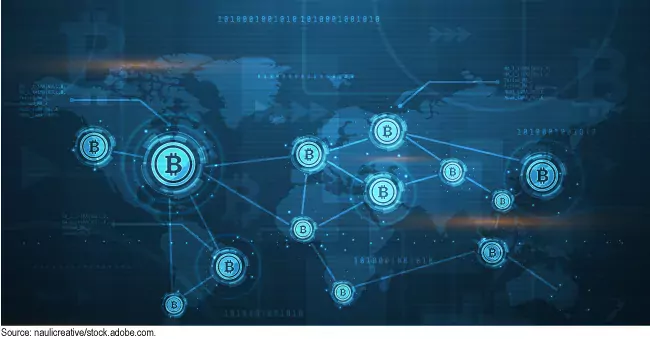The Effectiveness of Economic Sanctions At Risk from Digital Asset Growth
Economic sanctions are an important foreign policy tool that the U.S. uses to try and deter foreign states that are acting contrary to our interest or engaging in behavior such as human rights abuses. But increasingly, foreign states facing U.S. sanctions—including Iran and North Korea—are using digital assets to evade the impacts of those sanctions.
Today’s WatchBlog post looks at our new report on how digital assets are being used to evade U.S. sanctions and what the federal government is doing about it.
Image

How are digital assets being used to evade U.S. sanctions’ impacts?
Sanctions can be used to place economic restrictions on entire countries, sectors of countries’ economies, individuals, or entities. For example, a sanction could deny a foreign government access to the U.S. financial system or freeze an entity’s assets under U.S. jurisdiction. These sanctions could impact the value of a country’s currency or its ability to fund its military or other projects.
But sanctioned entities are using digital assets, like Bitcoin or other cryptocurrencies, to hide their transactions. These alternative assets also can allow countries to generate funds from cybercrime and other illegal or illicit activities the U.S. looks to stem through sanctions. For example, in April 2023, Treasury made sanctions designations against two individuals located in China for laundering stolen virtual currency in support of North Korea’s weapons programs.
What can be done about the challenges digital assets pose to U.S. sanctions?
Digital assets have characteristics that make them attractive to those looking to avoid sanctions. For example, they enable users to rapidly transfer value across borders and provide a level of anonymity. However, they also have limitations. For instance, federal agencies and private sector actors may be able to trace transactions and those making them on public blockchains.
Federal agencies that monitor illegal financial activities—such as the Departments of Justice and Treasury—have taken action to address the risks posed by digital assets. For example, in October 2022, the DOJ charged five Russian and two Venezuelan nationals for using cryptocurrency to evade sanctions related to obtaining Venezuelan oil and U.S. military technology.
The digital asset industry has also faced penalties for its role in these transactions. For example, in November 2023, the Treasury announced a financial settlement of nearly $4.4 billion with Binance Holdings Ltd. (a cryptocurrency exchange) and its affiliates for violations of U.S. anti-money laundering and sanctions laws. More examples of enforcement actions are detailed in our new report.
Federal agencies are also working with international organizations and partners to build investigative capacity and implement anti-money laundering standards. This promises to better protect global financial systems from having actors use digital assets for illicit purposes, including sanctions evasion.
The risks digital assets pose to sanctions implementation will likely continue to evolve. An increase in the use and acceptance of digital assets could erode the potency of U.S. sanctions and lead to greater sanctions evasion. On the other hand, advancements in capabilities to trace transactions and identify illicit actors could mitigate some sanctions evasion risks.
Learn more about this issue and the actions federal agencies are taking to address it by checking out our new report.
- GAO’s fact-based, nonpartisan information helps Congress and federal agencies improve government. The WatchBlog lets us contextualize GAO’s work a little more for the public. Check out more of our posts at GAO.gov/blog.
GAO Contacts
Related Products

GAO's mission is to provide Congress with fact-based, nonpartisan information that can help improve federal government performance and ensure accountability for the benefit of the American people. GAO launched its WatchBlog in January, 2014, as part of its continuing effort to reach its audiences—Congress and the American people—where they are currently looking for information.
The blog format allows GAO to provide a little more context about its work than it can offer on its other social media platforms. Posts will tie GAO work to current events and the news; show how GAO’s work is affecting agencies or legislation; highlight reports, testimonies, and issue areas where GAO does work; and provide information about GAO itself, among other things.
Please send any feedback on GAO's WatchBlog to blog@gao.gov.




